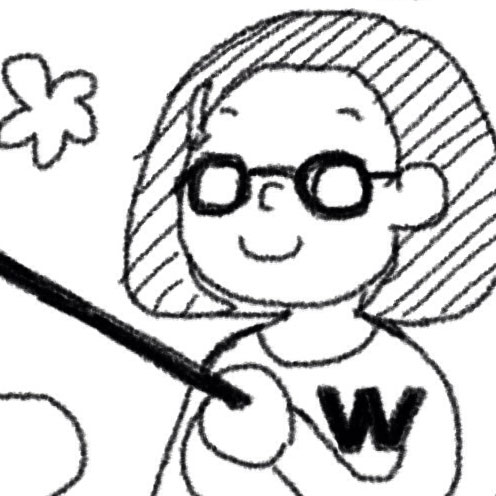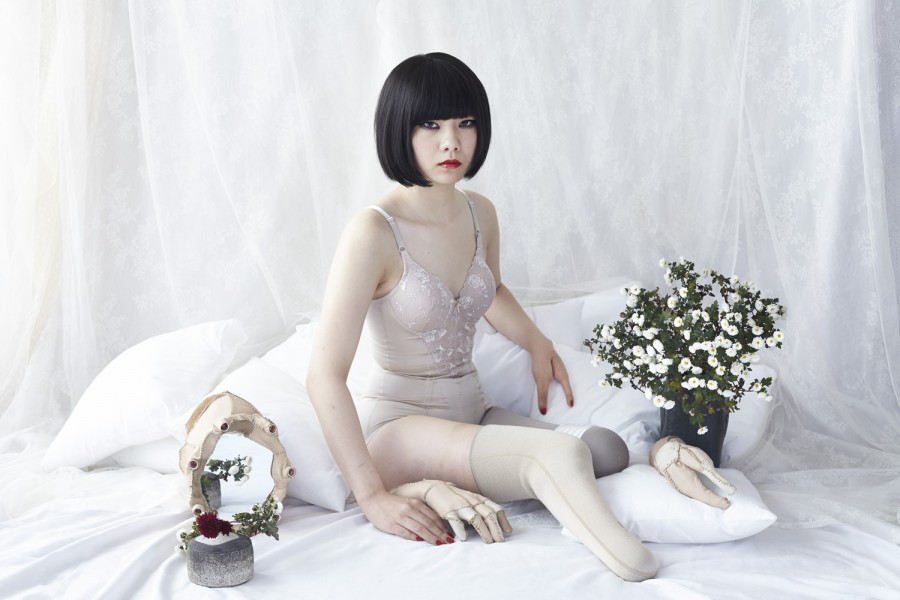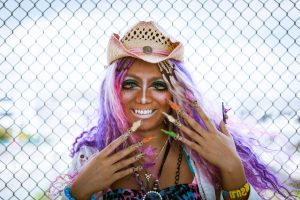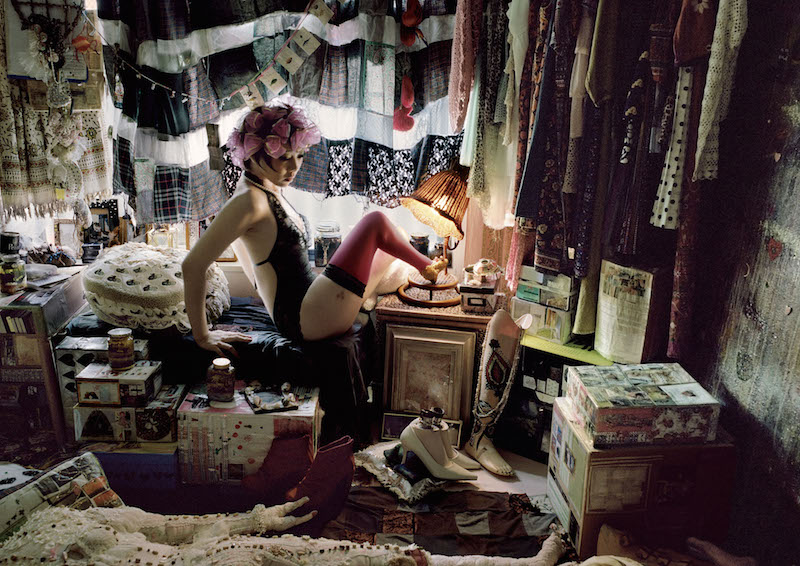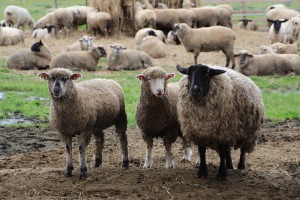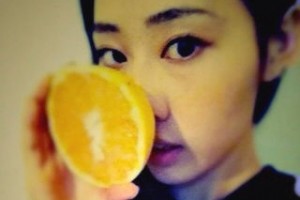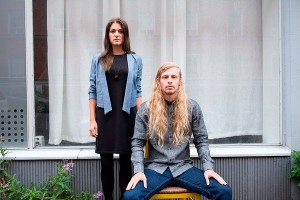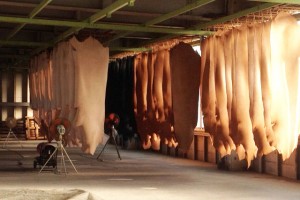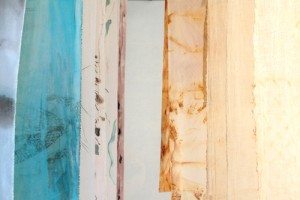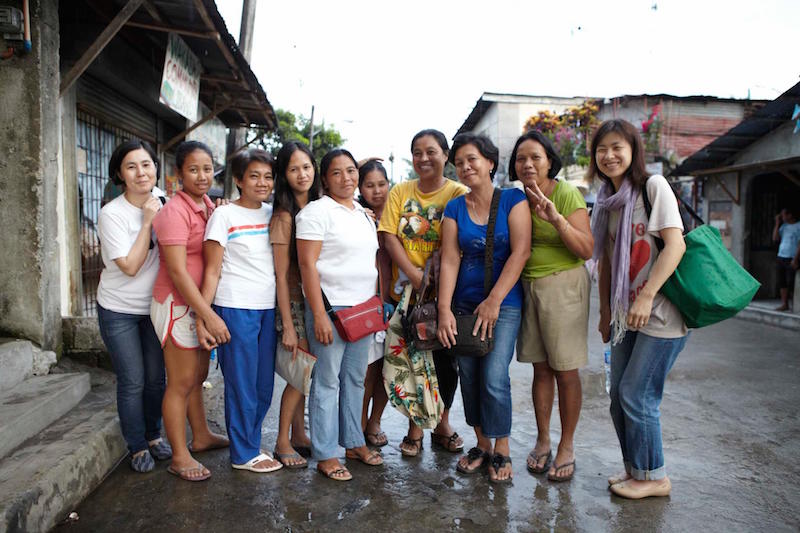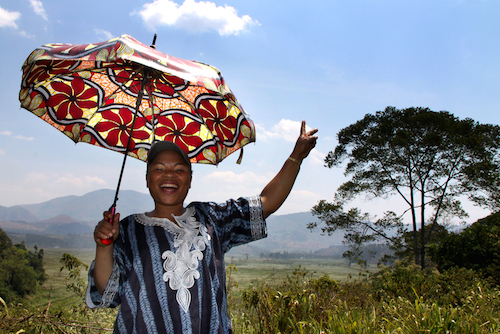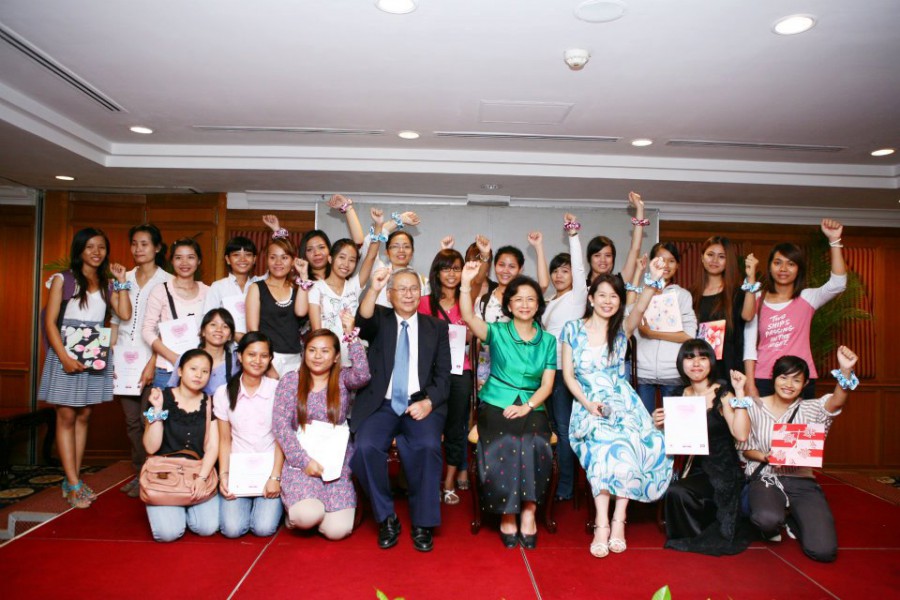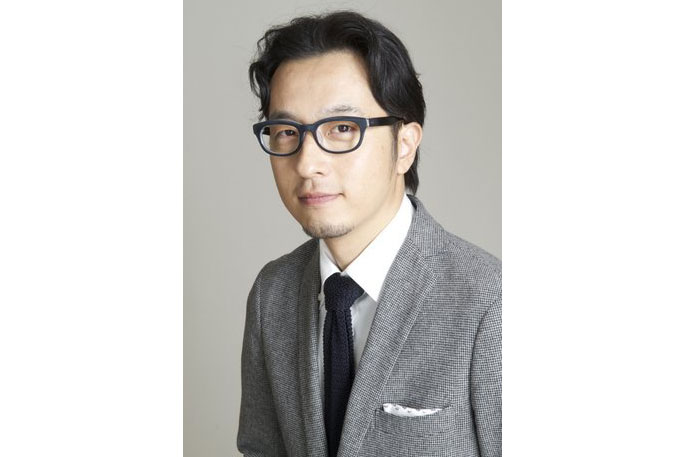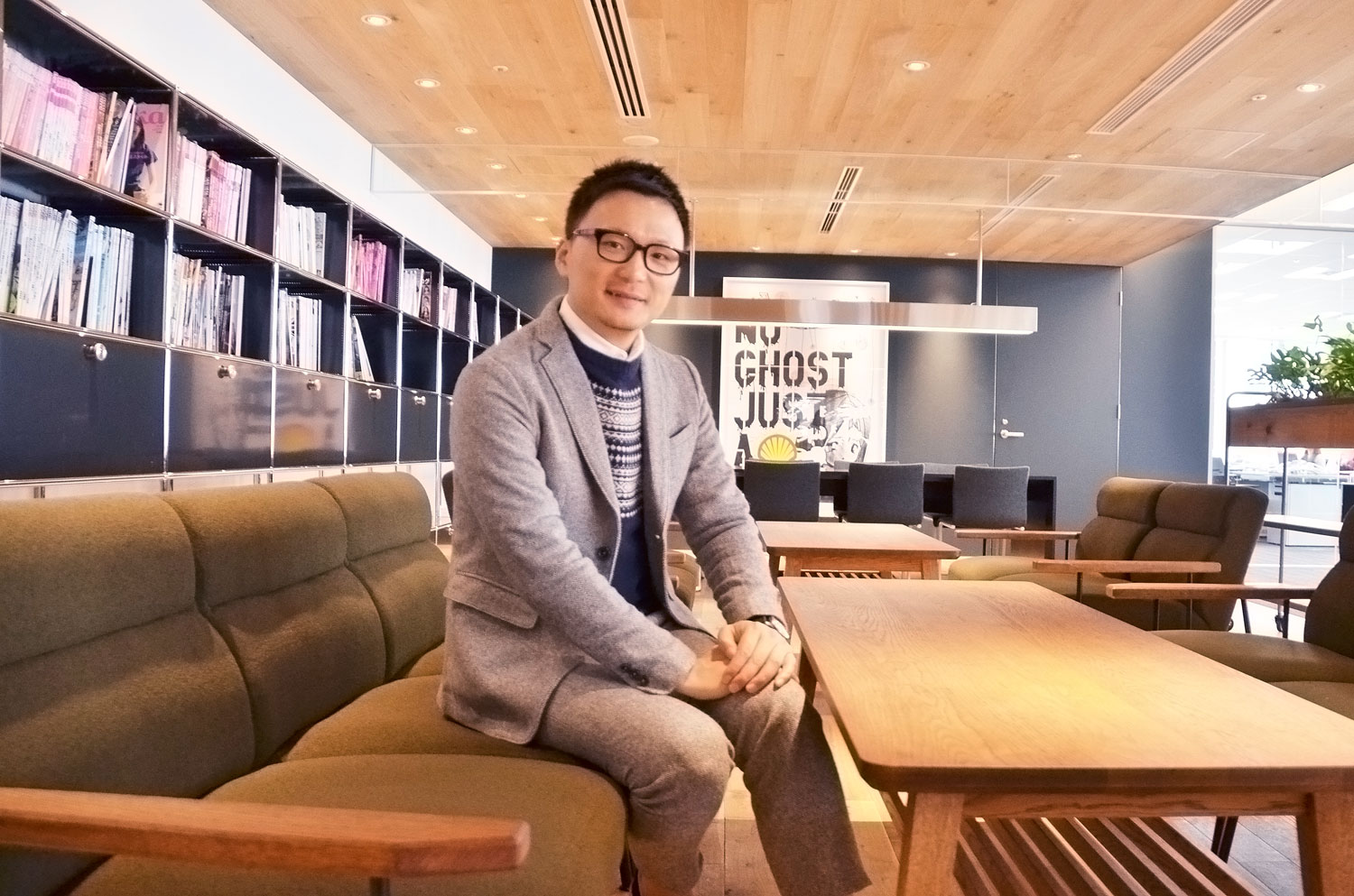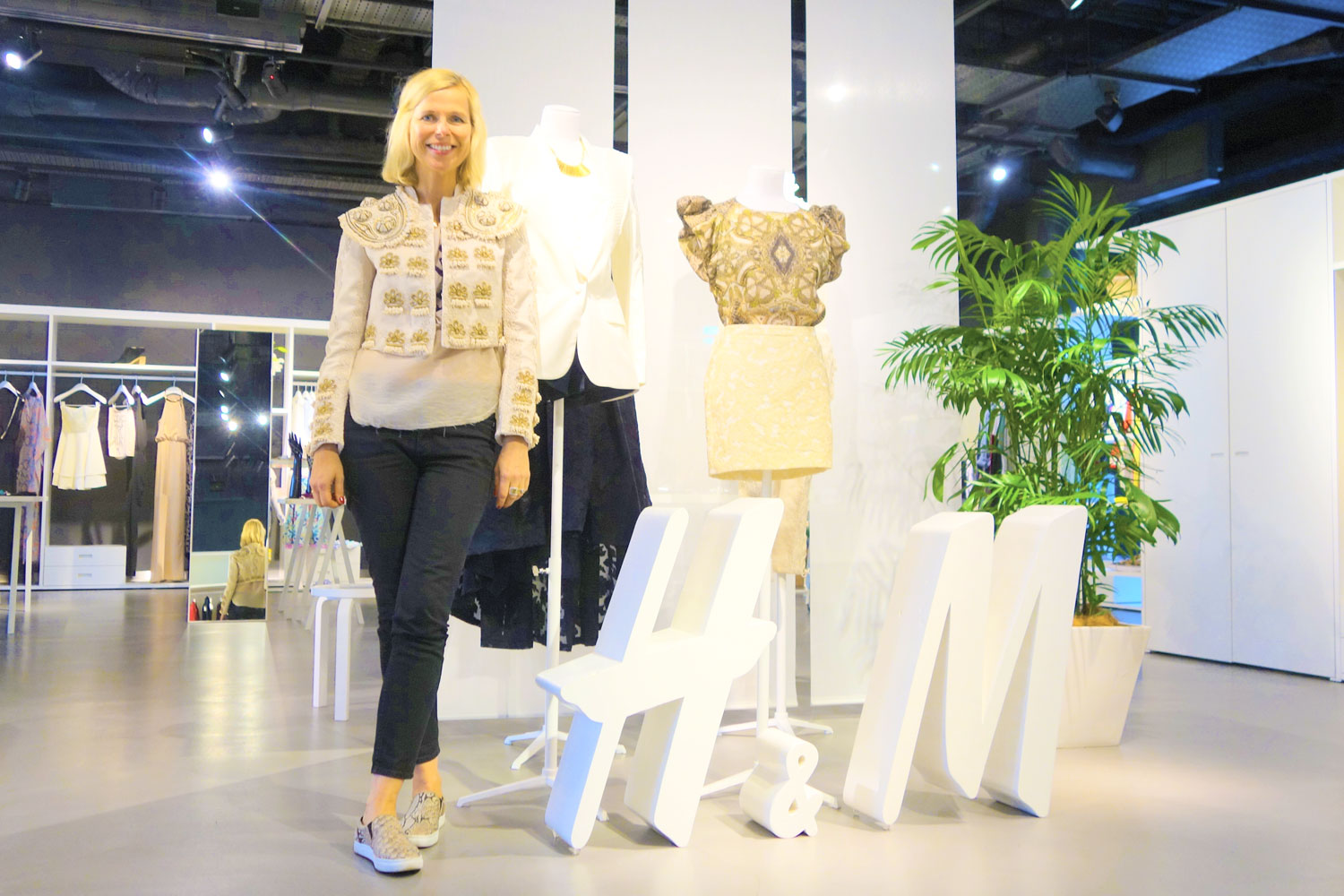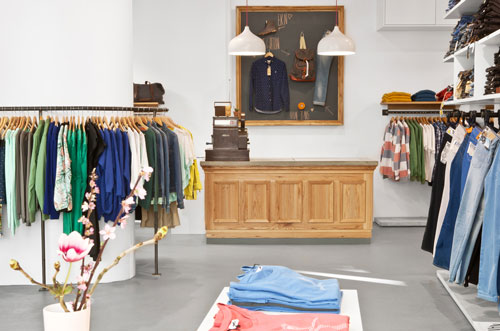She with Shaplaneer is an organic soap brand made by women from Bangladesh and Nepal.
Since the release of these products in May 2011, Shapla Neer has sold 50,000 bars of soap. All the makers are women who have been left to survive on their own—women whose husbands never returned after leaving home to work in distant places or who were rescued from forced prostitution.
Takako Ueda, from the international cooperative NGO Shapla Neer = Citizens’ Committee in Japan for Overseas Support, spearheads the development and sales of this product. “Our goal was to make products which sell, not because they are fair-trade products, but because they have good designs, smells and are useful,” says Ueda.
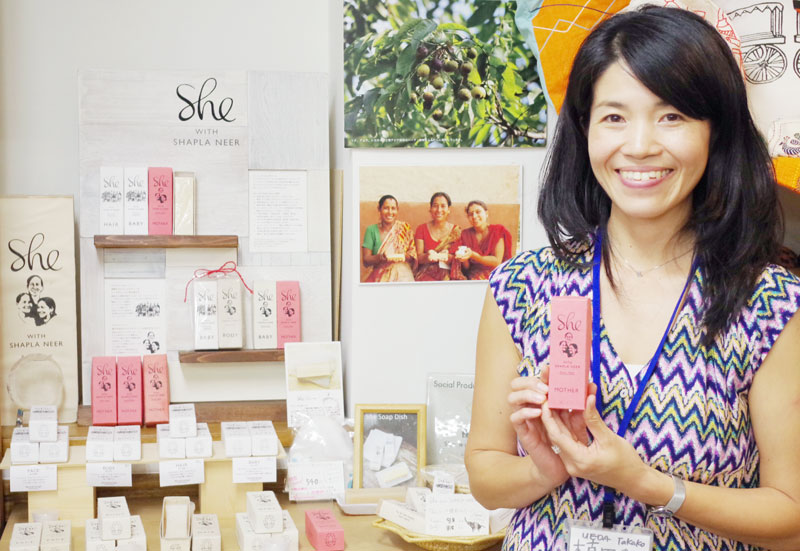
Takako Ueda from NGO Shapla Neer
A desire to help people living in struggle
At university, Ueda devoted herself to lacrosse. Wishing to concentrate on her sport, she planned to repeat her final year and begin job hunting. By chance, she applied and became employed with a semiconductor venture.
She was satisfied with her job. She had chances to do a variety of tasks with many overseas business trips, and she kept herself busy. However, after three years, she started to question herself: What did she really want to do? It was then she remembered the people she saw in India, where she went on a holiday after the lacrosse season had finished.
“In India, for the first time in my life, I was begged by a child,” Ueda says.
I rode a rickshaw by paying as little as 10 yen to a man who was about the same age as my grandfather. There were people who were struggling to live in the country where I went to have fun.
She left her company with plans to find a job that would let her communicate with and help those people. She became an intern at Shapla Neer, where she was given a full-time position in 2003.
Is it possible to sell natural soap from Bangladesh in Japan?
We made a sample of organic soap made by women who used to be sex workers. Could you sell them in Japan?
This was the question Ueda was asked by her partner organization, the American NGO Mennonite Central Committee (MCC) in November 2009, when Ueda was in charge of product development for fair-trade brand Craft Link. The soap was part of a project to create jobs for women by making products that no one had ever made and by using local natural materials.
Nobody at MCC had ever made soaps. However, they kept trying, following examples they had learned through the Internet and books and their desire to change lives.
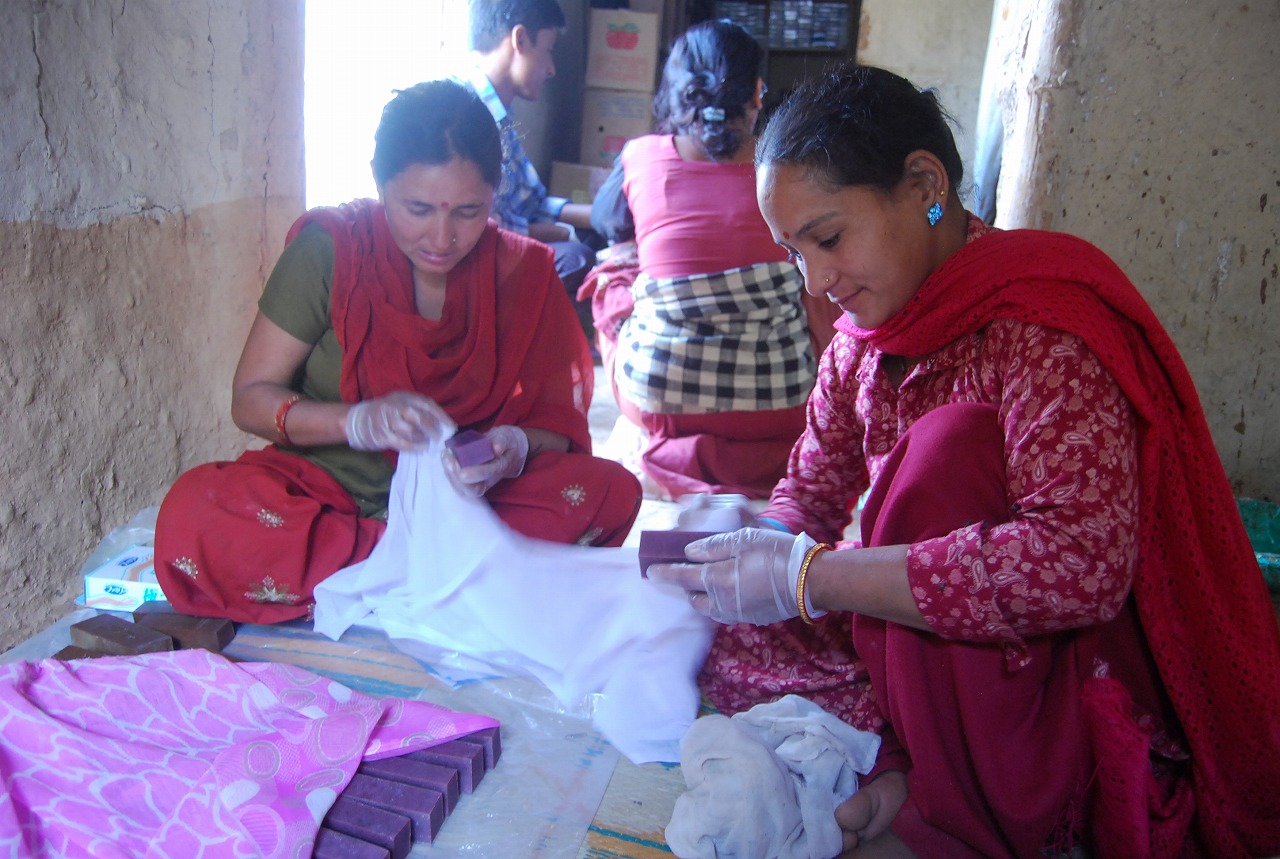
Inside the Nepali factory. Women checks and does the final polishing to the soap, one by one.(© Shaplaneer)
“At that time, our team at Craft Link had this feeling that we needed to do something, because the sales were not growing,” says Ueda. Entire fair-trade and handmade products, with which Shapla Neer was dealing, would not expand its market for several years.
However, despite the recession, sales of organic cosmetic products were increasing. Ueda convinced the organization to sell the soap with an eye on new customer acquisition. They decided to start the project in Nepal, home to Shapla Neer activities.
Two powers that changed the “horrible” soap
In July 2010, Ueda conducted a use survey about the soap with 20 members of fair-trade shop staff in Japan. The result was horrible.
“Stinks like oil, has bugs in it, it makes skin sting … I even thought I should not have decided to sell the soap,” recalls Ueda with a laugh.
In order to improve the soap, she went to Taiyo Oils and Fats Corporation, which has been making natural soaps for nearly 70 years. The president eagerly agreed to contribute to the project. Their product development team came to Bangladesh and Nepal to give technical advice to the local makers.
Ueda also met Daisuke Teshima at an organic products exhibition she attended to seek tips for selling her soap. Teshima developed his organic cosmetic brand from scratch into a huge brand that earns 200 million yen a year, and he has donated 10 million or more yen a year through cause-related marketing.
When Ueda consulted Teshima about her soap, he encouraged her, saying, “Let’s work together. Let’s think about the branding first.”
Soap for whom, for what?
Teshima is also the representative of the NPO Sell the Challenge, which helps disabled people plan and sell products they make. Sell the Challenge members, who are design and advertising professionals, met with Shapla Neer members to discuss the name, shape and packaging for the soap and to consider whom and what the soap was for.
During those meetings, it was said, “This soap is a product for ‘she’s who make it’; the brand’s name should be She.”
Everyone agreed with this idea to name the product She. The shape was decided to be rectangular, to add to its sophisticated image. The packaging was aimed to be on the shelves of Beauty Apothecary in Isetan, a Japanese department store known as a gateway to success for organic products.

(Two on Left)Soap made in Bangladesh, using Bengalese honey and lemongrass. (Two on Right)Soap made in Nepal, using Himalayan honey and ciuri. All hand made, using hand-made papers for packaging. This November, they will launch “She HAPPY Soap” for gift. Next March, they will also launch “She Thanks Soap” for special thanks gift.(© Shaplaneer)
Successful debut in May 2011
The first day of sales in May 2011, Ueda was at the booth herself. Many customers bought the soap, not because they were fair-trade products, but because of the good designs and scents. A salesperson from Isetan also came after hearing about the soap’s reputation. The products started to be sold to wholesale shops. The soap sold so well that Ueda was experiencing heart-stopping moments worrying about delivery deadlines.
“I wanted to scream out to the makers ‘our soap is purchased!’ with my mouth opened wide,” Ueda says.
Shapla Neer’s motto is to support the weakest in the society. It was very hard to sell products made by people who are in need, instead of products that sell well. Communicating with the makers was also difficult.
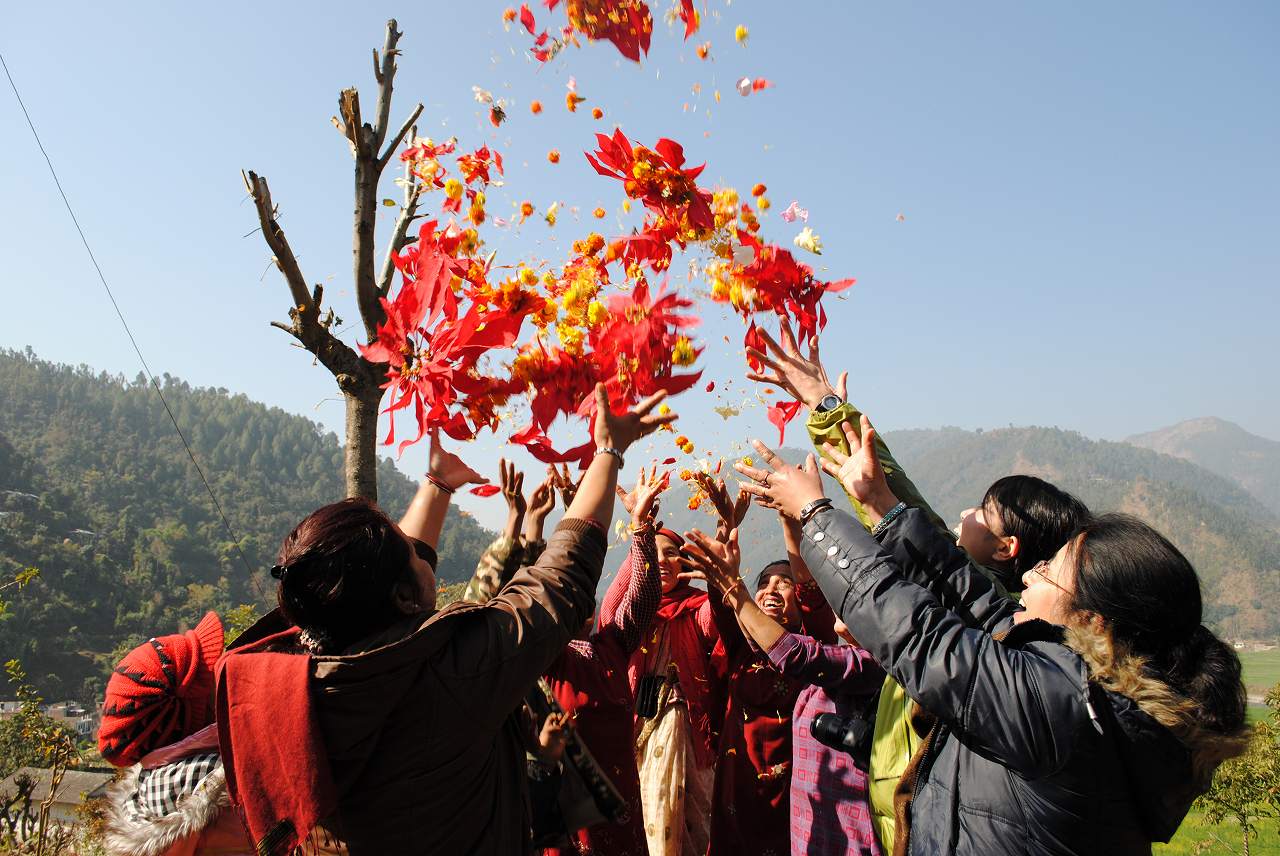
Image visual for second season. Producer women are throwing up flowers to express their wish to “bloom” their life through work. (© Shaplaneer)
Supported by women, changing women
Since sales started, profits have reached 38.7 million yen. In Bangladesh, the number of manufacturers has increased from three to 25. Earnings have increased fivefold. In Nepal, the size has yet to grow, but the many manufacturers have become confident in themselves as they now can live independently. Some of them want to help those in the same situation as themselves.
It is a great change to become someone who helps from someone who is helped. “She” was all about changing women’s lives, but I feel that many women also support this project, as many of our customers are women.
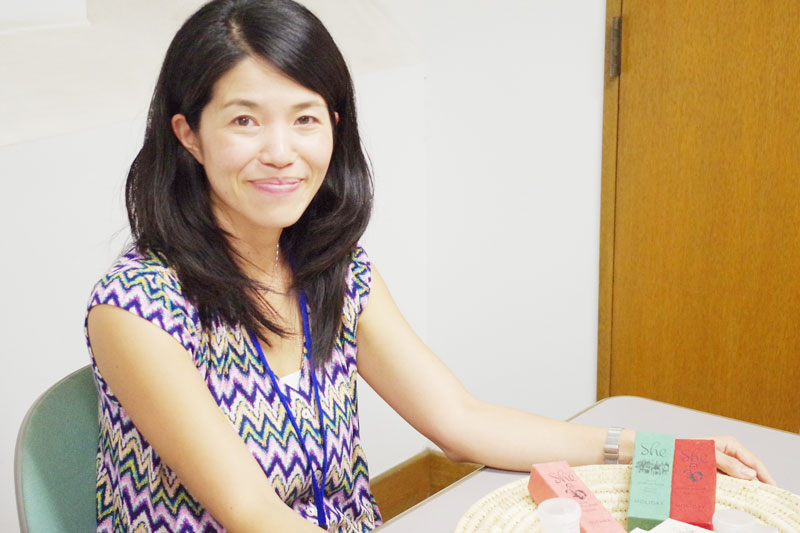
Now Ueda works for different position. “When I was in charge of ‘She,’ I was thinking about it every day and night. I’d love to do ‘She’ again, since liquid types sells better, I am thinking of producing shampoo” Ueda recalls.
(Translation by Akiko Ishige)

